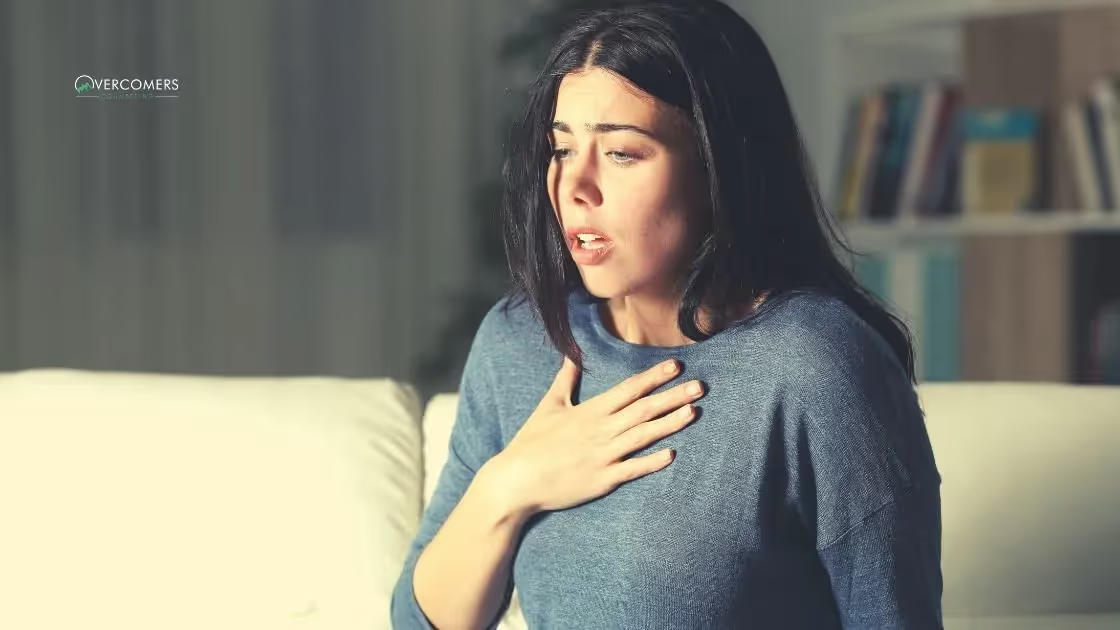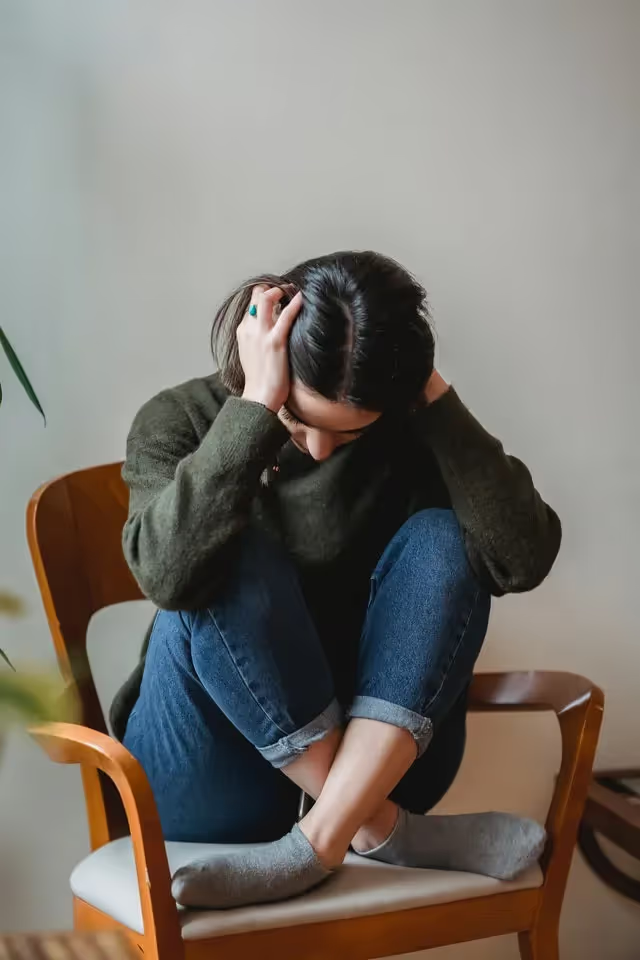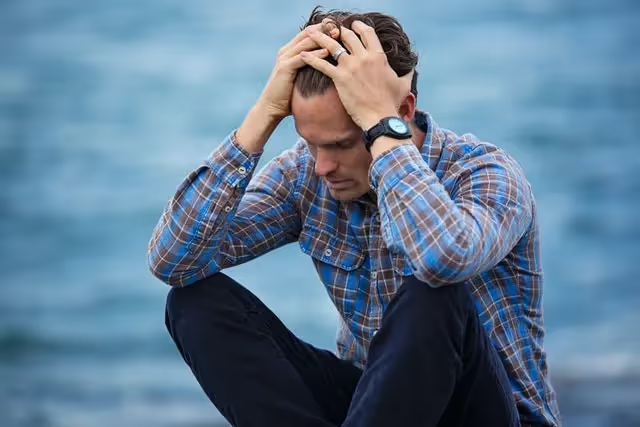You may be wondering, how long is an anxiety attack last? In most cases, anxiety attacks last for 30 minutes or less if the symptoms are recognized and...

You may be wondering, how long is an anxiety attack last? In most cases, anxiety attacks last for 30 minutes or less if the symptoms are recognized and prevented.
However, anxiety attacks can last for hours and even days before it relieves you, so it is important to take note of the factors that cause anxiety attacks so that you can prevent them.
Anxiety attacks are attacks where you feel fear, discomfort, or lose control when there is danger, and this usually happens without warning; in some cases, the symptoms can be a heart attack.
Here is what you need to know about anxiety attacks lasting for hours, symptoms, and how you can prevent them from happening.
Most anxiety attacks last a few minutes, but as you go through them, you often feel like it's a thing of a lifetime. The symptoms of an anxiety attack usually develop within 10 minutes before the attack. So it is possible to have an anxiety attack that lasts for hours and the ones that last for a few minutes.
According to research, some anxiety attacks last for hours and some for days, depending on how huge the symptoms are. Suppose the symptoms don't develop within 30 minutes and last for a day. In this case, it can be considered a high anxiety attack.
An anxiety attack can be a very serious issue; it can cause shakes and trembling and cause interruption to your daily life. Some anxiety attack last for hours until the source of stress is removed. The symptoms usually have been noticed for six months or more.

Anxiety attack has many physical symptoms. It is necessary to understand that the symptoms of anxiety attacks are a result of anxiety. There is a misconception that symptoms of underlying disease cause anxiety attacks, which determines the anxiety attack lasting for hours, but that is not true.
Breaking the chain of any form of an anxiety attack is easy, only if you learn and you can recognize the physical symptoms of an anxiety attack. Here are some common symptoms of anxiety attacks:
Fatigue is one of the most common symptoms that leads to anxiety attacks lasting for hours and causes chronic stress, depression, and other mental health issues. Fatigue is dangerous because it leaves the mind and the body in high alertness and a state of tension.
The mind is committed to scanning the internal and external environment for threats that eventually lead to physical tension and emotional distress. This state of high alertness is what leads to most anxiety attacks.
Anxiety is an involuntary action and response to danger, and it is normal for every human to survive. Still, the high level of this anxiety leads the body to deal with danger and threats, which is medically known as fight response. However, if you have high-level anxiety, your mind may not be able to notice the difference between imagined dangers and real ones, and due to this, the fight response will be active. The changes that occur after fight response in the body result in an increase in heart rate, which may eventually lead to an anxiety attack.
It is a common distressing symptom that leads to anxiety attacks. Shortness of breath is a result of hyperventilation; this happens when the body exhales too much carbon dioxide and inhales too much oxygen. Hyperventilation doesn't always harm or cause an attack. However, in some cases, you may start to feel choked, unable to breathe or have a lump in your throat, and the accumulation of all these symptoms may eventually lead to an attack.
Dizziness also known as unsteadiness in the body is usually caused by hyperventilation. In some cases, it may be caused by muscle tension in the shoulder or the neck. Dizziness is a symptom of an anxiety attack, and this also determines anxiety attacks lasting hours.

Muscle aches or joint pain is a result of tension. Anxiety causes muscles to stiffen, it can eventually lead to stiffness and pain in almost any body area. Constant stress and worrying too much may affect your immune system and cause it not to work properly, and lead to a decrease in resistance which causes disease or infection.
The addition of all these infections and disorderliness in the body is a symptom of anxiety and may eventually lead to anxiety attacks if not prevented.
Headaches and eye aches are symptoms of many illnesses, so just having a headache doesn't mean you're at risk of having an anxiety attack. In the case of anxiety attacks, headaches are caused by tension in the shoulders and neck. Poor posture, teeth grinding and hyperventilation can also cause headaches. Common symptoms of anxiety attacks occur when you begin to feel dull or sharp pains around your head.
It is dangerous to live all your life in fear of an anxiety attack that may affect your work or family because you don't know the anxiety attack lasts hours. A few different methods and techniques can help you prevent and manage anxiety attacks.
The best way you can prevent anxiety attacks is to go for a plan that will make you feel in control. If you already have a plan that works well during an attack, this will help you shorten the anxiety attack. Below are the best ways to prevent anxiety attacks;
Knowledge is power and that is the exact thing you are doing right now. Reading this information will help you to know the symptoms, feel in control and help you to shorten anxiety attacks. Many people are now experiencing anxiety attacks as their normal attacks, while some people only experience it once and this is because learning helps manage it better
The relaxation of your muscles and meditation will help in any moment of an anxiety attack. However, practicing it before any attack is essential because it will help you to prevent it.
Regular exercise in your body is good for preventing anxiety attacks, but it is also good for your physical and mental health. Exercising at high intensity will help prevent anxiety attacks. Through regular exercise, your body will be trained to realize that symptoms like sweating, breathing hard, and racing heartbeat doesn't mean anxiety. Exercise also helps to reduce stress which may cause anxiety attacks.
In the prevention of anxiety attacks and in knowing how long anxiety attacks last, smoking is a determinant. If you start noticing your anxiety attacks always occur anytime you consume a stimulant like alcohol or caffeine, it is best to avoid them. This will prevent you from consistent attacks.
Depriving yourself of long and sound sleep increases your anxiety level. So to prevent anxiety attacks, it is important to get enough sleep.
Anxiety can cause various distressing physical symptoms, but accepting and recognizing that the symptoms will not lead to anxiety attacks helps eliminate the fear and prevent anxiety. Generally, anxiety doesn't have specific lasting hours but the lasting hours depend on the symptoms. If you have been experiencing the symptoms and you notice your emotions are affecting your life, you should seek professional help.
Other activities which have been found helpful in reducing both immediate feelings of anxiousness and long-term anxieties associated with chronic disorders include yoga, journaling, nature walks, art therapy, volunteering, and other low-stress activities. Additionally, developing a healthy lifestyle incorporating adequate sleep, physical activity, and nutritious meals can help reduce overall stress levels.
Addressing anxiety is crucial because it can significantly impact your quality of life and overall well-being. Left untreated, anxiety can lead to more severe mental health issues, relationship problems, and difficulty functioning in daily life.
To reduce your anxiety, you can practice relaxation techniques such as deep breathing, progressive muscle relaxation, guided imagery, and mindfulness practices. Additionally, regular exercise has been found to be beneficial in managing stress and improving mental health.
The duration of anxiety counseling varies for each individual, depending on the severity of their anxiety and their progress in therapy. Our therapists will regularly assess your progress and adjust your treatment plan as needed.
It's important that you feel comfortable discussing personal matters with your therapist in order to open up and get more out of therapy sessions; therefore finding someone who meets certain criteria like experience level, expertise areas, and personality is key when selecting a therapist who can give meaningful feedback about how best handle issues related to anxiety or other mental health concerns.
Ignoring anxiety can exacerbate symptoms and make it more challenging to manage over time. This can result in a negative impact on your personal, professional, and social life, leading to feelings of isolation and even depression.